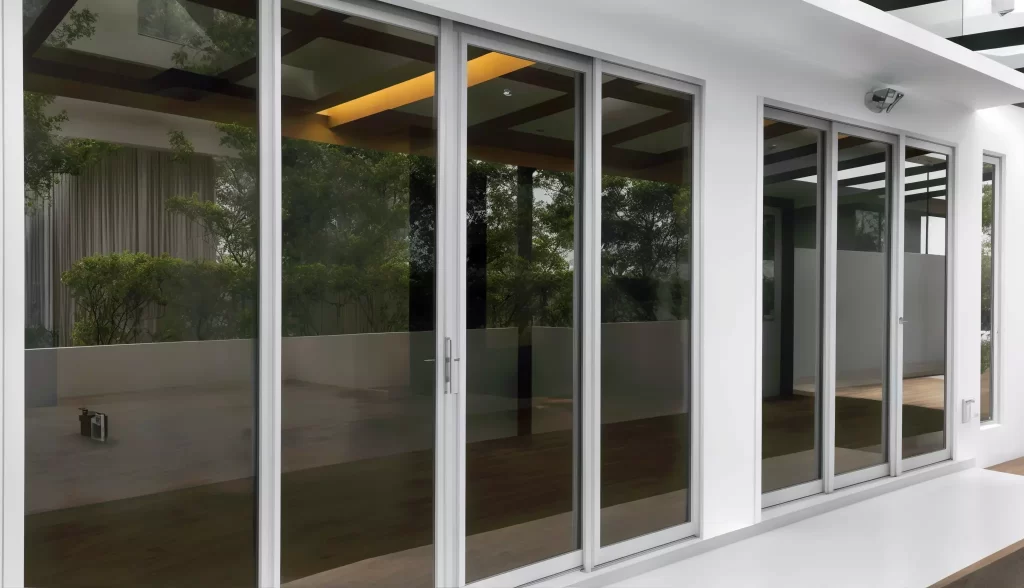
Do you ever think about keeping your privacy safe when you’re driving? Maybe you’re unsure if tinted windows really shield you from the sun’s harmful rays. Well, good news! Today, we’re here to clear up all your questions about privacy glass and how well it keeps out those UV rays. Keep reading to learn more!
What Is Privacy Glass?
Privacy glass is a special kind of window glass that reduces glare and blocks out harmful rays from the sun. It’s like wearing sunglasses for your windows! This helps keep your home, car, or office cooler and more private. It also saves you money on energy bills and keeps your furniture looking new.

Does Privacy Glass Block UV Radiation?
Yes, privacy glass does block some UV radiation. How much it blocks depends on the type of glass and how dark the tint is. There are different kinds of privacy glass. Some let in a little light and stop some UV rays. Others are very dark and stop most UV rays, but you can’t see in as well.

Types Of Privacy Glass:
There are different types of privacy glass. Each type has its good points and bad points. Let’s look at some of them:
- Light Tint: This type of privacy glass lets in about 70% of the light you see. It stops up to 96% of the bad UV rays. It gives you a bit of privacy during the day, but you can still see inside a little. It protects you from UV rays really well.
- Medium Tint: This type of privacy glass lets in about half of the light. It stops up to 98% of the bad UV rays. It gives you some privacy during the day, and it’s still pretty bright outside. It’s great at protecting you from UV rays.
- Dark Tint: This type of privacy glass lets in only about 20% of the light. It stops almost all of the bad UV rays. It gives you lots of privacy during the day, but it might make it hard to see at night or in dim light.
How Much UV Protection Do I Need?
The amount of UV protection you need depends on several things, such as your skin sensitivity, the time of day, and the season. If you drive a lot during peak sun hours (10 am to 4 pm), live in a place with strong UV rays, or have sensitive skin, you might want to use a higher level of tint. But remember, too much tint can make it harder to see at night.
Is Privacy Glass Safe?
Privacy glass is usually safe to use. Companies make sure their products are safe and don’t hurt people. But you should pick a trustworthy brand and install it correctly to avoid problems.
Contact Us For Unique Products And Services
Frequently Asked Questions
Yes, privacy glass and tinted glass are essentially the same thing. They both refer to glass that has been treated with a special coating to reduce glare and block out heat and UV radiation.
Most cars can accommodate privacy glass, but it’s essential to check with the manufacturer or a professional installer to ensure compatibility. Some cars may have specific requirements or restrictions on the type of tint that can be used.
The lifespan of privacy glass varies depending on factors like climate, usage, and maintenance. On average, well-maintained privacy glass can last for several years before it starts to degrade.
The cost of privacy glass varies depending on the type of glass, the level of tint, and the size of the windows. Generally speaking, privacy glass is a worthwhile investment that can pay for itself over time by reducing the need for air conditioning and protecting your car’s interior from damage caused by UV radiation.
Removing privacy glass can be challenging and may require professional assistance. It’s important to carefully consider your decision to install privacy glass, as it may not be easily reversible.
Some manufacturers offer warranties on privacy glass, while others do not. Be sure to check with the manufacturer or installer to determine what kind of warranty coverage is provided.
Conclusion
In summary, privacy glass helps block UV rays while driving. Different types of glass offer different levels of protection. Choose the right one for you. Make sure you can see well while driving. Privacy glass makes driving safer and more comfortable. It protects you from UV rays.
